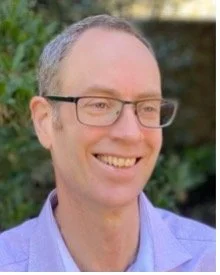Biography
Geoff Baker is Director of Research at the music charity Agrigento, visiting research fellow at Guildhall School of Music & Drama, and emeritus professor at Royal Holloway, University of London. He is the author of four books, including El Sistema: Orchestrating Venezuela’s Youth (Oxford, 2014) and Rethinking Social Action Through Music (Open Book, 2021). He has written many articles and chapters on colonial music, popular music, and music education in Latin America, and made a series of documentaries and short films about music learning in Cuba and Venezuela as part of the project Growing into Music, led by Lucy Durán. He is a founder member of SIMM (Social Impact of Making Music) and is in the final stages of working as a co-investigator on the international AHRC-funded project “Music for social impact: practitioners’ work, contexts, and beliefs.” Full details at https://geoffbakermusic.co.uk/.
Title:
Music, domination, and subversion in Latin American cities
Abstract
I will give a whistle-stop tour of my research on music in Latin American cities, which has focused on music and urban society in the colonial period, urban music in contemporary Cuba, and social action through music, and draw various conclusions from this work. Music is complex and ambiguous. It has been a tool of both domination and subversion, and it has the capacity to cause harm as well as good. So we should be wary of idealizations of music as a kind of panacea for urban problems.
Idealizations of music’s social powers are not just questionable, they are also pernicious. They validate the idea that any music will do. In fact, there is abundant research that shows that participatory music brings greater social benefits than presentational, and that informal learning is particularly conducive to psychosocial wellbeing. It is therefore important to ask questions such as: what kind of music? And what kind of pedagogy?
If domination and subversion run through music in Latin American cities, it is worth thinking about how these themes intersect with those of inclusion and wellbeing. Music for social impact has been widely harnessed to dominant agendas. Musical performance has long been used to project hegemonic idealizations of the social order. We should therefore be alert to the difference between public spectacles of social harmony and the work of promoting social connection and wellbeing through music making.
We might heed the critiques of public art for drawing a veil over the real causes of injustice and decorating the development policies of the neoliberal city. Anthony Schrag argues that artists should be concerned with asking “deep and probing questions” rather than serving as “the state’s cheaper option to proper and appropriate social work”. I see this as a call to question the appropriation of the socio-musical agenda as a form of governance and to pay more attention to how it might be articulated to more subversive musical currents.

